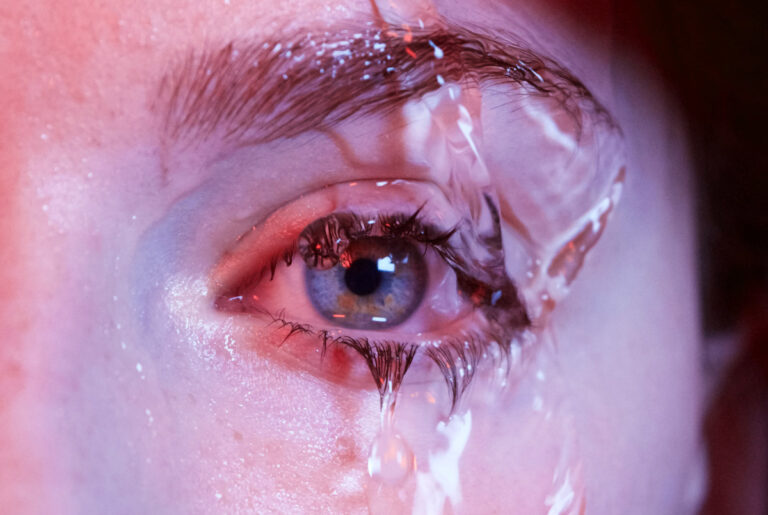FDA approves eye drops that could replace your reading glasses

From diagnosing depression with a blood test to testing revolutionary brain implants capable of restoring a blind person’s eyesight, advancements in the medical world show no sign of slowing. The latest striking innovation in healthcare, as first reported by CBS News, is set to revolutionise the lives of glass wearers in the US.
After getting approved by the Food and Drug Administration (FDA) back in October 2021, the new medicine has made headlines again for hitting the market just this week. Introducing Vuity, the first eye drop remedy created to sharpen near vision. Said to improve vision for up to six to ten hours at a time from as little as one drop in each eye, the new treatment, developed by biopharmaceutical company AbbVie, was initially produced as an alternative method to treating presbyopia—more commonly known as age-induced blurry sight.
It is believed that more than 128 million Americans, specifically pertaining to those aged 40 and above, have the condition—the most prominent symptom of which involves difficulty in reading words up close. In a press release for Vuity, Michael Severino, vice chairman and president of AbbVie, stated, “Most adults cope with presbyopia, or difficulty with near vision as we age. Beginning around the age of 40, many find themselves using reading glasses, holding text further away, or even increasing the font size and lighting on screens to try to see more clearly.”
He continued by admitting how Vuity is a first-of-its-kind, once-daily eye drop that the company believes will change the way people and their eye doctors approach presbyopia. “The FDA approval of Vuity exemplifies our continued pursuit of innovative new treatments that push the boundaries of what’s possible in eye care,” he added. So, how does it work?
Well, the drops reportedly utilise the eye’s natural skill to reduce its pupil size. Doctor George Waring—the principal investigator of the drug’s clinical trial—told CBS, “Reducing the pupil size expands the depth of field or the depth of focus, and that allows you to focus at different ranges naturally.” Those in the clinical trial, consisting of 750 participants, were able to see three more lines (than they usually would) on their reading chart just 15 minutes after being administered a singular drop in each eye.
Want to get your hands on some? Well, as part of its press release for Vuity, AbbVie stated that the eye drops will cost you around $80 for a 30-day supply—the drops are currently only available via prescription and, as of now, not covered by insurance (and unlikely to be, as glasses are seen as the cheaper alternative).
Like with any new medical treatment, shortcomings are bound to arise as side effects listed by the company in the trial included red eyes and headaches. However, Waring told CBS that “this is something that we anticipate will be well tolerated long term, but this will be evaluated and studied in a formal capacity.” Such symptoms are an indication that Vuity is not an all-in-one solution.
Aside from these side effects, AbbVie also warns users against administering the drops if one is driving at night or engaging with activities planned in low-light conditions. The pharmaceutical company further noted that its product’s efficacy will vary depending on the patient; it is likely to be more successful in those with mild to intermediate cases of blurry vision and less effective in those over the age of 65.
All that being said, one happy candidate of the trial told CBS that the medicine is a “life changer.” Toni Wright, the participant in question, shared with the media outlet, “I would not need my readers as much, especially on the computer, where I would always need to have them on.”




